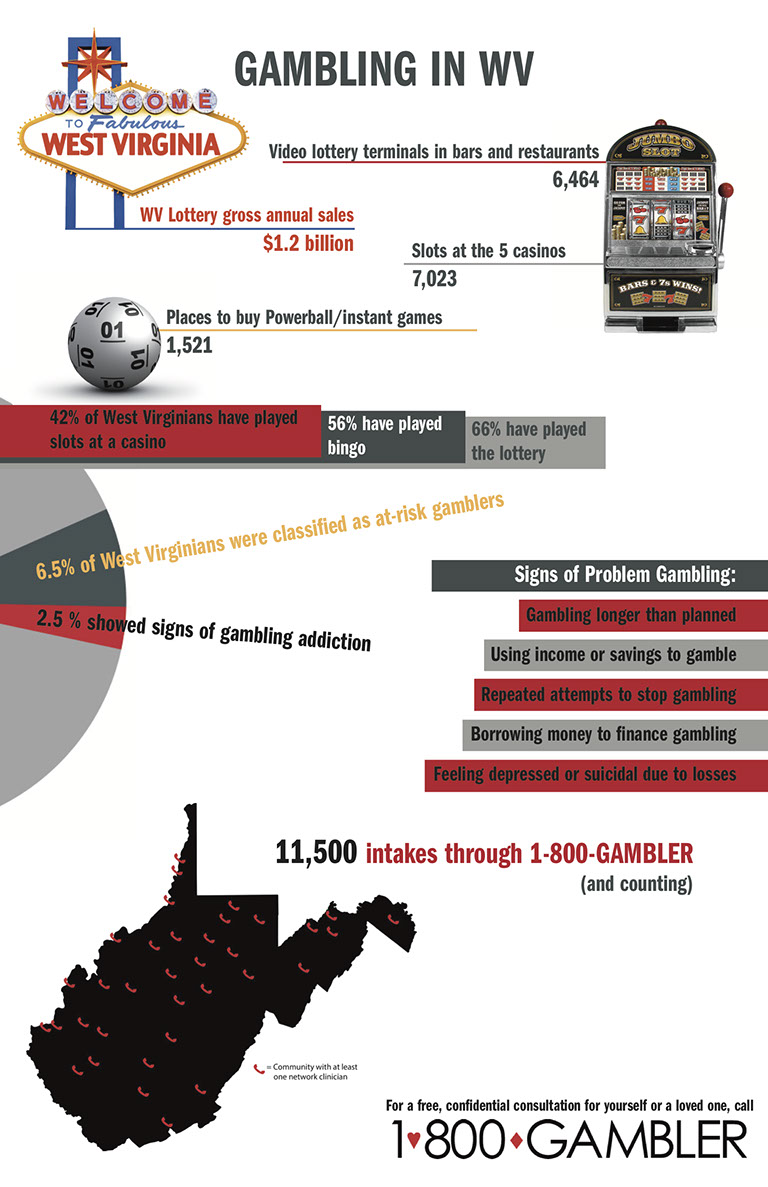CHARLESTON, W.Va. — If you play slot machines, which is more likely to pay out, a “hot” machine that has been paying out all night, or a “cold” machine that hasn’t produced any recent jackpots?
“Many people say they were cheated by the casino, not understanding that with the house edge, casinos don’t have to cheat to make money. Some people are convinced their lucky charms or pre-play rituals help them win. Many develop a fixation on one particular location or even a specific machine. We’ve had callers bribing bartenders to keep other people from playing ‘their’ machine,” she said, adding that the counselors who work with problem gamblers spend a lot of time debunking these myths, and some of them even compare it to a deprogramming.
Callers to 1-800-GAMBLER speak with a helpline counselor based in Charleston, and they are referred to one of the network’s 70 plus specially trained gambling addiction counselors. They receive a free two-hour consultation. Funds are available for those who do not have insurance to pay for additional treatment. Follow-up studies with helpline callers show that the majority of callers are able to stop gambling within six months of entering treatment.
More information is available by calling 1-800-GAMBLER or visiting www.1800gambler.net.






